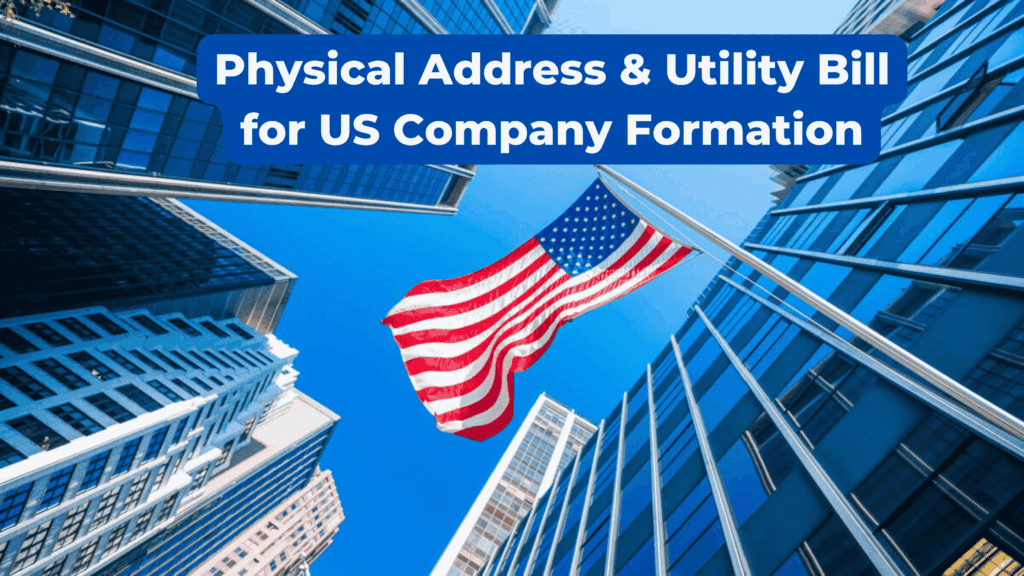What Is the SS-4 Form?
The SS-4 Form is an application to acquire an Employer Identification Number (EIN) from the IRS. An EIN serves as your business’s tax ID, essential for tax filing, hiring employees, and even opening a corporate bank account in the U.S. Whether you’re forming an LLC, a corporation, or any business entity as an international entrepreneur, the SS-4 is your first step toward business compliance. This form is especially critical for non-residents who aim to establish a legitimate business presence in the United States. For more information, you can visit the IRS website or consult resources like www.irs.gov.
Do You Need the SS-4 Form?
If you’re a non-resident establishing a company in the U.S., you absolutely need an EIN, and the SS-4 Form is your route to get it. It’s especially vital for the following reasons:
- Registering your business: Both LLCs and corporations require an EIN for tax purposes.
- Opening a business bank account: Most banks demand an EIN for corporate accounts, making it a mandatory step for financial operations.
- Fulfilling employment obligations: If you hire employees, EIN registration is mandatory to meet federal compliance.
- Simplifying tax filing: EIN numbers streamline tax filing processes and are legally required for corporations and LLCs.
Without an EIN, many fundamental business operations in the U.S. cannot proceed, so completing the SS-4 Form is a crucial step.
How to Complete the SS-4 Form
Filling out the SS-4 Form can be intricate, especially for non-U.S. residents. Here’s a streamlined step-by-step guide to ensure you get it right the first time:
- Determine Your Entity Type: Before filling out the SS-4, you’ll need to specify your business type (e.g., LLC, corporation).
- Enter Your Business Information: This includes your business name, address, and the name of the principal officer or owner.
- Provide Reason for Applying: Most international entrepreneurs check “Started a New Business” as the reason for applying.
- Foreign Entity Information: If your business’s responsible party is non-U.S.-based, additional details need to be included, such as your ITIN.
- Submit the Form: You can apply online, by fax, or by mail. Non-residents often prefer mailing to ensure every detail aligns with IRS rules.
For additional guidance, review resources from government sites like www.sba.gov, which provide helpful insights for small businesses and foreign entrepreneurs.
Common Mistakes to Avoid When Filing Form SS-4
Mistakes during the SS-4 application process can delay your EIN approval. Here are the common errors to steer clear of:
- Using the wrong address: If your business doesn’t have a U.S. mailing address, ensure the address provided is valid and reliable.
- Incorrect responsible party details: Failing to provide accurate information about the business owner or primary officer can lead to application rejection.
- Overlooking ITIN requirements: If you’re a foreign applicant without an ITIN, additional documentation may be required.
Avoiding these mistakes ensures a smoother EIN application process and faster approval times.
How Clemta Simplifies the SS-4 Process
Handling IRS forms as a non-resident can be overwhelming, but that’s where Clemta steps in. With a dedicated suite of services tailored for international entrepreneurs, Clemta ensures a hassle-free SS-4 application process, complete with guidance on EINs, ITINs, and other essential business services.
We take care of:
- Preparing and filing your SS-4 Form to ensure accuracy.
- Providing support for ITIN requirements and documentation.
- Offering additional services, including banking, bookkeeping, and trademark registration.
Clemta’s expertise allows you to focus on growing your business while we handle the complexities of U.S. regulations.
Next Steps for International Entrepreneurs
The SS-4 Form is more than a requirement—it’s your gateway to establishing a legitimate business in the U.S. Whether you’re launching an e-commerce shop, forming an LLC, or scaling a global SaaS startup, the role of the SS-4 is indispensable.
If you’re unsure about the process or need professional assistance, consider consulting with business service providers who specialize in international entrepreneurship. Government resources like www.export.gov can also provide valuable insights for expanding your business into the U.S. market.
Final Thoughts
The SS-4 Form may seem complex on the surface, but with the right guidance, it becomes a straightforward step in your entrepreneurial journey. Partnering with a business service provider like Clemta ensures non-U.S. entrepreneurs can focus on growth while navigating U.S. regulations effortlessly.
Looking for expert guidance through every step of the business formation process? Visit app.clemta.com to explore tailored offerings or book a consultation today. Get started now and simplify the path to rapid growth for your U.S. business!







